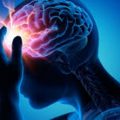Everything You Need to Know about Hypothyroidism

What is hypothyroidism?
Hypothyroidism occurs when your body doesn’t produce enough thyroid hormones. The thyroid is a small, butterfly-shaped gland that sits at the front of your neck. It releases hormones to help your body regulate and use energy.
Your thyroid is responsible for providing energy to nearly every organ in your body. It controls functions like how your heart beats and how your digestive system works. Without the right amount of thyroid hormones, your body’s natural functions begin to slow down.
If you’ve recently been diagnosed with the condition, it’s important to know that treatment is considered simple, safe, and effective. Most treatments rely on supplementing your low hormone levels with artificial varieties. These hormones will replace what your body isn’t producing on its own and help return your body’s functions to normal.
What are the signs and symptoms of hypothyroidism?
The signs and symptoms of hypothyroidism vary from person to person. The severity of the condition also affects which signs and symptoms appear and when. The symptoms are also sometimes difficult to identify.
Early symptoms can include weight gain and fatigue. Both become more common as you age, regardless of your thyroid’s health. You may not realize that these changes are related to your thyroid until more symptoms appear.
For most people, symptoms of the condition progress gradually over many years. As the thyroid slows more and more, the symptoms may become more easily identified. Of course, many of these symptoms also become more common with age in general. If you suspect your symptoms are the result of a thyroid problem, it’s important you talk with your doctor. They can order a blood test to determine if you have hypothyroidism.
The most common signs and symptoms of hypothyroidism include:
1. fatigue
2. depression
3. constipation
4. feeling cold
5. dry skin
6. weight gain
7. muscle weakness
8. decreased sweating
9. slowed heart rate
10. elevated blood cholesterol
11. pain and stiffness in your joints
12. dry, thinning hair
13. impaired memory
14. fertility difficulties or menstrual changes
15. muscle stiffness, aches, and tenderness
16. hoarseness
17. puffy, sensitive face.
What causes hypothyroidism?
Common causes of hypothyroidism include:
An autoimmune disease
Your immune system is designed to protect your body’s cells against invading bacteria and viruses. When unknown bacteria or viruses enter your body, your immune system responds by sending out fighter cells to destroy the foreign cells.
Sometimes, your body confuses normal, healthy cells for invading cells. This is called an autoimmune response. If the autoimmune response isn’t regulated or treated, your immune system can attack healthy tissues. This can cause serious medical issues, including conditions like hypothyroidism.
Hashimoto’s disease is an autoimmune condition and the most common cause of an underactive thyroid. This disease attacks your thyroid gland and causes chronic thyroid inflammation. The inflammation can reduce thyroid function. It’s common to find multiple family members with this same condition.
Diagnosing hypothyroidism
Two primary tools are used to determine if you have hypothyroidism:
Medical evaluation
Your doctor will complete a thorough physical exam and medical history. They’ll check for physical signs of hypothyroidism, including:
dry skin
slowed reflexes
swelling
a slower heart rate.
In addition, your doctor will ask you to report any symptoms you’ve been experiencing, such as fatigue, depression, constipation, or feeling constantly cold.
If you have a known family history of thyroid conditions, it’s important you tell your doctor during this exam.
Blood tests
Blood tests are the only way to reliably confirm a diagnosis of hypothyroidism. A thyroid-stimulating hormone (TSH) test measures how much TSH your pituitary gland is creating:
1. If your thyroid isn’t producing enough hormones, the pituitary gland will boost TSH to increase thyroid hormone production.
2. If you have hypothyroidism, your TSH levels are high, as your body is trying to stimulate more thyroid hormone activity.
3. If you have hyperthyroidism, your TSH levels are low, as your body is trying to stop excessive thyroid hormone production.
Medications for hypothyroidism
Hypothyroidism is a lifelong condition. For many people, medication reduces or alleviates symptoms. It is best treated by using levothyroxine. This synthetic version of the T4 hormone copies the action of the thyroid hormone your body would normally produce.
The medication is designed to return adequate levels of thyroid hormone to your blood. Once hormone levels are restored, symptoms of the condition are likely to disappear or at least become much more manageable.
Once you start treatment, it takes several weeks before you begin feeling relief. You’ll require follow-up blood tests to monitor your progress. You and your doctor will work together to find a dose and a treatment plan that best addresses your symptoms. This can take some time.
In most cases, people with hypothyroidism must remain on this medication their entire lives. However, it’s unlikely you’ll continue to take the same dose. To make sure your medication is still working properly, your doctor should test your TSH levels yearly.
If blood levels indicate the medicine isn’t working as well as it should, your doctor will adjust the dose until a balance is achieved.
Alternative treatment for hypothyroidism
Animal extracts that contain thyroid hormone are available. These extracts come from the thyroid glands of pigs. They contain both T4 and triiodothyronine (T3).
If you take levothyroxine, you’re only receiving T4. But that’s all you need because your body is capable of producing T3 from the synthetic T4.
These alternative animal extracts are often unreliable in dosing and haven’t been shown in studies to be better than levothyroxine. For these reasons, they aren’t routinely recommended.
Dietary recommendations for people with hypothyroidism
As a general rule, people with hypothyroidism don’t have a specific diet they should follow. However, here are some recommendations to keep in mind:
Eat a balanced diet
Your thyroid needs adequate amounts of iodine in order to fully function. You don’t need to take an iodine supplement in order for that to happen. A balanced diet of whole grains, beans, lean proteins, and colorful fruits and vegetables should provide enough iodine.
Monitor soy intake
Soy may hinder the absorption of thyroid hormones. If you drink or eat too many soy products, you may not be able to properly absorb your medication. This can be especially important in infants needing treatment for hypothyroidism who also drink soy formula.
Soy is found in:
- tofu
- vegan cheese and meat products
- soy milk
- soybeans
- soy sauce.
You need steady doses of the medication to achieve even levels of thyroid hormone in your blood. Avoid eating or drinking soy-based foods for at least two hours before and after you take your medication.
Be smart with fiber
Like soy, fiber may interfere with hormone absorption. Too much dietary fiber may prevent your body from getting the hormones it needs. Fiber is important, so don’t avoid it entirely. Instead, avoid taking your medicine within several hours of eating high-fiber foods.
Don’t take thyroid medicine with other supplements
If you take supplements or medications in addition to thyroid medicine, try to take these medicines at different times. Other medications can interfere with absorption, so it’s best to take your thyroid medicine on an empty stomach and without other medicines or foods.
Living with hypothyroidism: Things to consider
Even if you’re undergoing treatment, you may deal with long-lasting issues or complications because of the condition. There are ways to lessen the effect of hypothyroidism on your quality of life:
Develop fatigue coping strategies
Despite taking medication, you may still experience fatigue from time to time. It’s important you get quality sleep each night, eat a diet rich in fruits and vegetables, and consider the use of stress-relieving mechanisms, like meditation and yoga, to help you combat low energy levels.
Monitor for other health conditions
There is a link between other autoimmune diseases and hypothyroidism. Hypothyroidism often goes along with other conditions like:
- celiac disease
- diabetes
- rheumatoid arthritis
- lupus
- adrenal gland disorders
- pituitary problems
- obstructive sleep apnea.
Hypothyroidism and depression
When levels of thyroid hormones are low, your body’s natural functions slow down and lag. This creates a variety of symptoms, including fatigue, weight gain, even depression.
Some people with hypothyroidism may only experience mood difficulties. This can make diagnosing hypothyroidism difficult. Instead of only treating the brain, doctors should also consider testing for and treating an underactive thyroid.
Depression and hypothyroidism share several symptoms. These include:
- difficulty concentrating
- weight gain
- fatigue
- depressed mood
- reduced desire and satisfaction
- sleep difficulties.
The two conditions also have symptoms that may distinguish them from one another. For hypothyroidism, problems such as dry skin, constipation, high cholesterol, and hair loss are common. For depression alone, these conditions wouldn’t be expected.
Hypothyroidism and anxiety
While hypothyroidism has long been associated with depression, a recent study indicates it may be associated with anxiety, too. Researchers recently evaluated 100 patients between the ages of 18 and 45 with a known history of hypothyroidism. Using an anxiety questionnaire, they found that nearly 60 percent of people with hypothyroidism met the criteria for some form of anxiety.
Hypothyroidism and pregnancy
Hypothyroidism affects your entire body. Your thyroid is responsible for many of your body’s daily functions, including metabolism, heartbeat, and temperature control. When your body doesn’t produce enough thyroid hormone, all of these functions can slow.
Women who have hypothyroidism and wish to become pregnant face a particular set of challenges. Low thyroid function or uncontrolled hypothyroidism during pregnancy can cause:
- anemia
- miscarriage
- preeclampsia
- stillbirth
- low birth weight
- brain development problems
- birth defects.
Women with thyroid problems can and very often do have healthy pregnancies. If you have hypothyroidism and are pregnant, it’s important to keep the following in mind during the time you’re expecting:
Stay current on medicine
Continue to take your medication as prescribed. It’s common to have frequent testing so your doctor can make any necessary adjustments to your thyroid medication as your pregnancy progresses.
Eat well
Your body needs more nutrients, vitamins, and minerals while you’re pregnant. Eating a well-balanced diet and taking multivitamins while you’re pregnant can help maintain a healthy pregnancy.
Hypothyroidism and weight loss
Your thyroid gland creates hormones that are responsible for a large number of bodily functions. These functions include using energy, controlling body temperature, keeping organs functioning, and regulating metabolism.
When thyroid hormone levels are low, research shows that people are more likely to gain weight. That’s likely because their body doesn’t burn energy as efficiently as a body with a healthier thyroid. The amount of weight gain isn’t very high, however.
Once you’re treated for this condition, you may lose any weight that you’ve gained. If treatment doesn’t help eliminate the extra weight, you should be able to lose weight with a change in diet and an increase in exercise. That’s because once your thyroid levels are restored, your ability to manage your weight returns to normal.
Featured image courtesy: Yuri Elkaim and Mayo Clinic News Network.
Sources:






